🧵 𝗧𝗵𝗲 𝗛𝗶𝗱𝗱𝗲𝗻 𝗖𝗿𝗶𝘀𝗶𝘀: 𝗧𝗵𝗲 𝗪𝗮𝗿 𝗼𝗻 𝗪𝗼𝗺𝗲𝗻 𝗮𝗻𝗱 𝘁𝗵𝗲 𝗦𝘁𝗿𝘂𝗴𝗴𝗹𝗲 𝗳𝗼𝗿 𝗟𝗶𝗳𝗲 𝗶𝗻 𝗚𝗮𝘇𝗮 ♀️
In Gaza, where every day is a battle for survival, there exists a hidden crisis,
one that is felt deeply by women who are facing unimaginable hardships. The
brutal genocide has left thousands of women trapped in a cycle of violence,
displacement, and deprivation, with nowhere to turn for safety. As Gaza’s
health system collapses under the strain of relentless bombing and blockades,
women, especially pregnant women, are bearing the heaviest burden. What’s
often overlooked in the daily updates on the destruction is the severe toll this
conflict is taking on their health, their lives, and, crucially, the future of their
children.
In Gaza, where every day is a battle for survival, there exists a hidden crisis,
one that is felt deeply by women who are facing unimaginable hardships. The
brutal genocide has left thousands of women trapped in a cycle of violence,
displacement, and deprivation, with nowhere to turn for safety. As Gaza’s
health system collapses under the strain of relentless bombing and blockades,
women, especially pregnant women, are bearing the heaviest burden. What’s
often overlooked in the daily updates on the destruction is the severe toll this
conflict is taking on their health, their lives, and, crucially, the future of their
children.

𝗧𝗵𝗲 𝗦𝗶𝗹𝗲𝗻𝘁 𝗕𝗮𝘁𝘁𝗹𝗲: 𝗣𝗿𝗲𝗴𝗻𝗮𝗻𝘁 𝗪𝗼𝗺𝗲𝗻 𝗮𝘁 𝗥𝗶𝘀𝗸
The ongoing genocide in Gaza has placed pregnant women in an impossible
position. Many were forced to flee their homes due to the unceasing
bombardment, seeking refuge in overcrowded spaces or makeshift tents. Yet,
even within these temporary shelters, they were not safe. Asmaa Ahmed, a 31-
year-old mother describes the terror of giving birth in the middle of the night
in a Gaza City school that had no electricity. “I was very, very afraid to lose the
baby,” she recalls. With no access to proper medical equipment and only the
dim light of a mobile phone to guide the doctor’s hands, the birth of her son
was just one of many similar stories. This isn’t simply a crisis; it’s a fight for
survival.
Across Gaza, approximately 52,000 pregnant women were facing
overwhelming challenges. Their lives, and the lives of their babies, are at risk
every single day. The lack of adequate maternal care, coupled with a scarcity of
clean sanitary products like pads, means these women are struggling in ways
that most can barely imagine. Pregnancy in Gaza has transformed into a
perilous journey, with miscarriage rates rising sharply and maternal mortality
spiking. Doctors and nurses, overwhelmed by the sheer volume of patients, are
forced to work in makeshift hospitals or even on the streets to assist with
deliveries in conditions that should be considered unthinkable.
The ongoing genocide in Gaza has placed pregnant women in an impossible
position. Many were forced to flee their homes due to the unceasing
bombardment, seeking refuge in overcrowded spaces or makeshift tents. Yet,
even within these temporary shelters, they were not safe. Asmaa Ahmed, a 31-
year-old mother describes the terror of giving birth in the middle of the night
in a Gaza City school that had no electricity. “I was very, very afraid to lose the
baby,” she recalls. With no access to proper medical equipment and only the
dim light of a mobile phone to guide the doctor’s hands, the birth of her son
was just one of many similar stories. This isn’t simply a crisis; it’s a fight for
survival.
Across Gaza, approximately 52,000 pregnant women were facing
overwhelming challenges. Their lives, and the lives of their babies, are at risk
every single day. The lack of adequate maternal care, coupled with a scarcity of
clean sanitary products like pads, means these women are struggling in ways
that most can barely imagine. Pregnancy in Gaza has transformed into a
perilous journey, with miscarriage rates rising sharply and maternal mortality
spiking. Doctors and nurses, overwhelmed by the sheer volume of patients, are
forced to work in makeshift hospitals or even on the streets to assist with
deliveries in conditions that should be considered unthinkable.

𝗧𝗵𝗲 𝗖𝗼𝗹𝗹𝗮𝗽𝘀𝗲 𝗼𝗳 𝗛𝗲𝗮𝗹𝘁𝗵𝗰𝗮𝗿𝗲: 𝗪𝗼𝗺𝗲𝗻 𝗪𝗶𝘁𝗵𝗼𝘂𝘁 𝗦𝘂𝗽𝗽𝗼𝗿𝘁
In Gaza, hospitals have been either destroyed or are operating far below
capacity. According to the United Nations, only a fraction of Gaza’s hospitals
were functioning at all, with many lacking the necessary equipment to support
a safe delivery. These hospitals are devoid of incubators for premature babies,
painkillers for new mothers, and even basic medications for complications like
infections. Instead, women are often told to bring their own mattresses and
sheets just to secure a place to lie down. For many, giving birth on unsanitary
floors or in temporary shelters is their only option.
The lack of resources has led to an alarming increase in infections,
malnutrition, and psychological trauma. Many women suffer from the stress of
constant bombardment, compounded by food and water shortages.
Malnutrition, dehydration, and exhaustion are making an already dangerous
situation even worse, resulting in low birth weights, stillbirths, and even deaths
that could have been prevented under normal circumstances. What’s worse is
that postpartum care is virtually non-existent. Women are forced to return to
their shelters, to the rubble of their former lives, with no medical support to
guide them through the critical recovery period.
In Gaza, hospitals have been either destroyed or are operating far below
capacity. According to the United Nations, only a fraction of Gaza’s hospitals
were functioning at all, with many lacking the necessary equipment to support
a safe delivery. These hospitals are devoid of incubators for premature babies,
painkillers for new mothers, and even basic medications for complications like
infections. Instead, women are often told to bring their own mattresses and
sheets just to secure a place to lie down. For many, giving birth on unsanitary
floors or in temporary shelters is their only option.
The lack of resources has led to an alarming increase in infections,
malnutrition, and psychological trauma. Many women suffer from the stress of
constant bombardment, compounded by food and water shortages.
Malnutrition, dehydration, and exhaustion are making an already dangerous
situation even worse, resulting in low birth weights, stillbirths, and even deaths
that could have been prevented under normal circumstances. What’s worse is
that postpartum care is virtually non-existent. Women are forced to return to
their shelters, to the rubble of their former lives, with no medical support to
guide them through the critical recovery period.

𝗧𝗵𝗲 𝗛𝗶𝗱𝗱𝗲𝗻 𝗦𝘁𝗿𝘂𝗴𝗴𝗹𝗲 𝗳𝗼𝗿 𝗕𝗮𝘀𝗶𝗰 𝗦𝗮𝗻𝗶𝘁𝗮𝗿𝘆 𝗖𝗮𝗿𝗲
Beyond childbirth, menstruation and hygiene remain critical yet entirely
overlooked issues. In the absence of sanitary pads, many women and girls are
left with no choice but to use makeshift materials to manage their periods,
posing severe health risks. Infections have become all too common due to
unsanitary conditions, and the physical and emotional toll on these women is
heartbreaking. For pregnant women, the lack of access to basic care, such as
prenatal vitamins and sanitary products, only compounds the risks to their
babies.
For women like Rose Hindawi, who was pregnant with triplets, the scarcity of
even basic food has left her weak and dizzy. “Since the war broke out, I’ve had
a meal with enough protein just once,” she says. The mental anguish of not
being able to properly care for herself, and, by extension, her babies, is nearly
unbearable.
Beyond childbirth, menstruation and hygiene remain critical yet entirely
overlooked issues. In the absence of sanitary pads, many women and girls are
left with no choice but to use makeshift materials to manage their periods,
posing severe health risks. Infections have become all too common due to
unsanitary conditions, and the physical and emotional toll on these women is
heartbreaking. For pregnant women, the lack of access to basic care, such as
prenatal vitamins and sanitary products, only compounds the risks to their
babies.
For women like Rose Hindawi, who was pregnant with triplets, the scarcity of
even basic food has left her weak and dizzy. “Since the war broke out, I’ve had
a meal with enough protein just once,” she says. The mental anguish of not
being able to properly care for herself, and, by extension, her babies, is nearly
unbearable.

𝗧𝗵𝗲 𝗕𝗶𝗿𝘁𝗵 𝗼𝗳 𝗮 𝗚𝗲𝗻𝗲𝗿𝗮𝘁𝗶𝗼𝗻 𝗨𝗻𝗱𝗲𝗿 𝗦𝗶𝗲𝗴𝗲
The situation for pregnant women in Gaza is bleak. Those who do manage to
carry their pregnancies to term face the terrifying reality of childbirth in
conditions of severe deprivation, with no medical assistance, and in unhygienic
surroundings. Children born in Gaza today enter a warzone, where survival is a
daily struggle, and the basic right of women to give birth in safety is being
denied. What’s happening in Gaza is a genocidal crisis, one that leaves an
entire generation of children facing a future marked by trauma, suffering, and
survival amidst the devastation.
The dire food insecurity affecting nearly 95% of pregnant women in Gaza
means many of them are going hungry, further endangering the health of their
babies. The World Health Organisation has reported that nearly a quarter of
Gaza’s population is at risk of starvation, with the worst impact being felt by
pregnant and breastfeeding women. The starvation tactics being used
deliberately blocking vital aid and resources have led to widespread
malnutrition, further threatening the health of both mothers and their babies.
The situation for pregnant women in Gaza is bleak. Those who do manage to
carry their pregnancies to term face the terrifying reality of childbirth in
conditions of severe deprivation, with no medical assistance, and in unhygienic
surroundings. Children born in Gaza today enter a warzone, where survival is a
daily struggle, and the basic right of women to give birth in safety is being
denied. What’s happening in Gaza is a genocidal crisis, one that leaves an
entire generation of children facing a future marked by trauma, suffering, and
survival amidst the devastation.
The dire food insecurity affecting nearly 95% of pregnant women in Gaza
means many of them are going hungry, further endangering the health of their
babies. The World Health Organisation has reported that nearly a quarter of
Gaza’s population is at risk of starvation, with the worst impact being felt by
pregnant and breastfeeding women. The starvation tactics being used
deliberately blocking vital aid and resources have led to widespread
malnutrition, further threatening the health of both mothers and their babies.
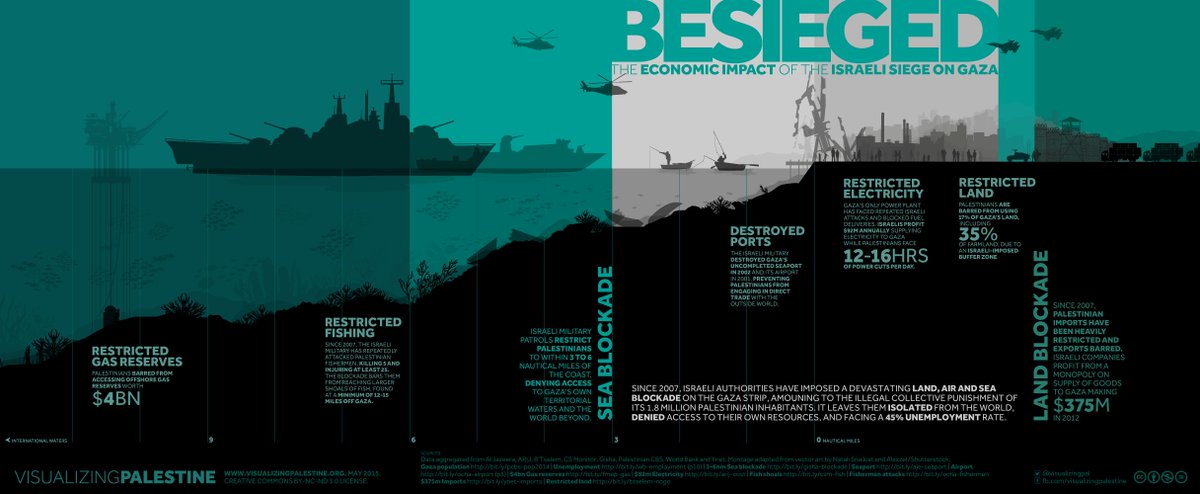
𝗧𝗵𝗲 𝗦𝘁𝗿𝘂𝗴𝗴𝗹𝗲𝘀 𝗼𝗳 𝗣𝗿𝗲𝗴𝗻𝗮𝗻𝗰𝘆 𝗮𝗻𝗱 𝗛𝗲𝗮𝗹𝘁𝗵𝗰𝗮𝗿𝗲 𝗶𝗻 𝗚𝗮𝘇𝗮 𝗗𝘂𝗿𝗶𝗻𝗴 𝗖𝗼𝗻𝗳𝗹𝗶𝗰𝘁
Pregnancy should be a time of hope, a moment of anticipation for new life. But
for many women in Gaza, this period is marked by fear, uncertainty, and
unimaginable hardship. Since the outbreak of violence in 2023, pregnant
women have faced ongoing unparalleled challenges in accessing basic
necessities like clean water, proper healthcare, and adequate nutrition. These
challenges are further exacerbated by the constant stress of living in a
warzone, where displacement, lack of safety, and a devastating shortage of
medical resources have made even the simplest acts, like giving birth or caring
for a newborn, into life-threatening struggles.
Pregnancy should be a time of hope, a moment of anticipation for new life. But
for many women in Gaza, this period is marked by fear, uncertainty, and
unimaginable hardship. Since the outbreak of violence in 2023, pregnant
women have faced ongoing unparalleled challenges in accessing basic
necessities like clean water, proper healthcare, and adequate nutrition. These
challenges are further exacerbated by the constant stress of living in a
warzone, where displacement, lack of safety, and a devastating shortage of
medical resources have made even the simplest acts, like giving birth or caring
for a newborn, into life-threatening struggles.
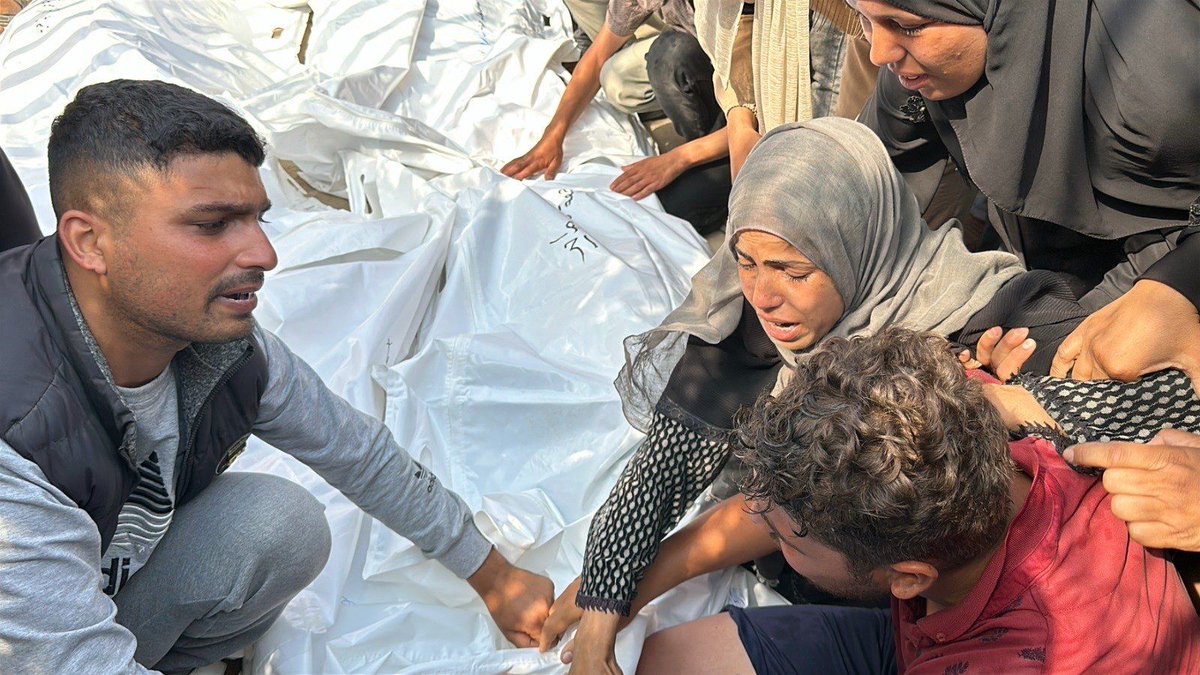
𝗔𝗰𝗰𝗲𝘀𝘀 𝘁𝗼 𝗖𝗹𝗲𝗮𝗻 𝗪𝗮𝘁𝗲𝗿: 𝗔 𝗦𝘁𝗿𝘂𝗴𝗴𝗹𝗲 𝗳𝗼𝗿 𝗦𝘂𝗿𝘃𝗶𝘃𝗮𝗹
One of the greatest challenges faced by pregnant women in Gaza is access to
clean water, a basic necessity that many of us take for granted. Israa Mazen
Diab al-Ghul, 30, shared her harrowing experience of struggling to find clean
water during her pregnancy. “My husband spent hours every day trying to find
clean water, but sometimes he failed,” she said. During one particularly
desperate time in early 2024, her family had to drink seawater for 48 hours. “I
vomited and was terrified it would harm my baby,” she recounted. “I prayed
that the war would end before I gave birth. Eventually, I started begging God to
take my baby, so I wouldn’t have to give birth during the war.”
This is not an isolated story. Access to clean water is urgent and widespread
problem for many families in Gaza, especially for vulnerable groups like
pregnant women and children. The spread of waterborne diseases, including
hepatitis A, has been rampant, and Dr. Naela Masri from Khan Younis shared
that many of her pregnant patients have contracted hepatitis A due to the
appalling lack of sanitation, sometimes leading to miscarriage.
One of the greatest challenges faced by pregnant women in Gaza is access to
clean water, a basic necessity that many of us take for granted. Israa Mazen
Diab al-Ghul, 30, shared her harrowing experience of struggling to find clean
water during her pregnancy. “My husband spent hours every day trying to find
clean water, but sometimes he failed,” she said. During one particularly
desperate time in early 2024, her family had to drink seawater for 48 hours. “I
vomited and was terrified it would harm my baby,” she recounted. “I prayed
that the war would end before I gave birth. Eventually, I started begging God to
take my baby, so I wouldn’t have to give birth during the war.”
This is not an isolated story. Access to clean water is urgent and widespread
problem for many families in Gaza, especially for vulnerable groups like
pregnant women and children. The spread of waterborne diseases, including
hepatitis A, has been rampant, and Dr. Naela Masri from Khan Younis shared
that many of her pregnant patients have contracted hepatitis A due to the
appalling lack of sanitation, sometimes leading to miscarriage.

𝗛𝗲𝗮𝗹𝘁𝗵𝗰𝗮𝗿𝗲 𝗖𝗵𝗮𝗹𝗹𝗲𝗻𝗴𝗲𝘀: 𝗠𝗶𝘀𝗰𝗮𝗿𝗿𝗶𝗮𝗴𝗲𝘀, 𝗣𝗿𝗲𝘁𝗲𝗿𝗺 𝗕𝗶𝗿𝘁𝗵𝘀, 𝗮𝗻𝗱 𝗟𝗶𝗺𝗶𝘁𝗲𝗱 𝗦𝘂𝗽𝗽𝗼𝗿𝘁
The healthcare situation in Gaza is now critical. Hospitals are overcrowded,
under-resourced, and struggling to provide even the most basic care.
Miscarriages and stillbirths have become tragically common since the conflict
began. Dr. Ayoub from al-Sahaba Maternity Hospital reports a shocking rise in
miscarriage rates, with injuries sustained from military attacks often
contributing to the deaths of mothers and babies alike. Shahad al-Qutaiti, a 23-
year-old woman, was seven months pregnant when an Israeli airstrike hit her
apartment. She sustained severe injuries and lost her pregnancy within hours.
Preterm births have also risen, as the constant stress and trauma of living
through a war take a heavy toll on the bodies of pregnant women. Dr. Masri
observed many babies born underweight in her hospital, an indication of the
immense strain on mothers in Gaza. With the healthcare system overwhelmed,
incubators are in short supply, and some babies must share them, further
increasing the risk of infection.
The healthcare situation in Gaza is now critical. Hospitals are overcrowded,
under-resourced, and struggling to provide even the most basic care.
Miscarriages and stillbirths have become tragically common since the conflict
began. Dr. Ayoub from al-Sahaba Maternity Hospital reports a shocking rise in
miscarriage rates, with injuries sustained from military attacks often
contributing to the deaths of mothers and babies alike. Shahad al-Qutaiti, a 23-
year-old woman, was seven months pregnant when an Israeli airstrike hit her
apartment. She sustained severe injuries and lost her pregnancy within hours.
Preterm births have also risen, as the constant stress and trauma of living
through a war take a heavy toll on the bodies of pregnant women. Dr. Masri
observed many babies born underweight in her hospital, an indication of the
immense strain on mothers in Gaza. With the healthcare system overwhelmed,
incubators are in short supply, and some babies must share them, further
increasing the risk of infection.
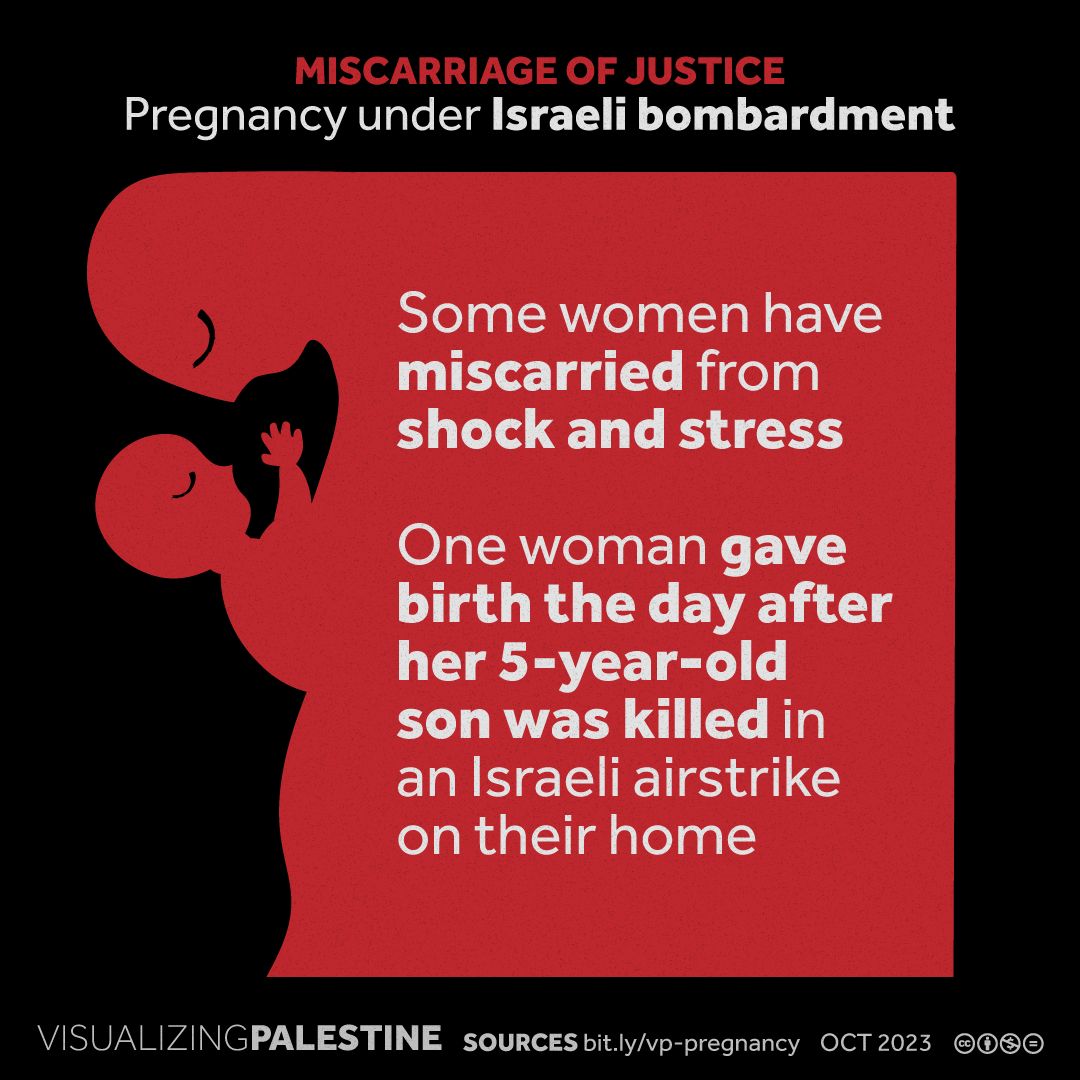
𝗔 𝗟𝗮𝗰𝗸 𝗼𝗳 𝗣𝗼𝘀𝘁𝗻𝗮𝘁𝗮𝗹 𝗖𝗮𝗿𝗲 𝗮𝗻𝗱 𝗣𝗿𝗼𝗽𝗲𝗿 𝗡𝘂𝘁𝗿𝗶𝘁𝗶𝗼𝗻
Once they’ve given birth, many women face yet another hurdle: a lack of
proper postnatal care. Overcrowded hospitals and an overstretched healthcare
system mean that new mothers are often discharged quickly, leaving them
without adequate support or guidance during a critical period. This lack of care
can lead to serious complications for both the mother and the newborn.
Nutrition is another pressing issue. Breastfeeding, already challenging under
normal circumstances, has become even more difficult in Gaza. Many mothers
face additional stress, inadequate nutrition, and a shortage of clean water, all
of which impede their ability to feed their babies. For those unable to
breastfeed, formula feeding becomes a risky option, since access to clean
water for mixing formula is extremely limited. Abdulhafith al-Khalidi, a local
resident, shared how babies in his family have suffered from digestive issues
and fevers due to the contaminated water they had access to. Tragically, some
babies are even dying from malnutrition and dehydration, as families struggle
to provide adequate care.
Once they’ve given birth, many women face yet another hurdle: a lack of
proper postnatal care. Overcrowded hospitals and an overstretched healthcare
system mean that new mothers are often discharged quickly, leaving them
without adequate support or guidance during a critical period. This lack of care
can lead to serious complications for both the mother and the newborn.
Nutrition is another pressing issue. Breastfeeding, already challenging under
normal circumstances, has become even more difficult in Gaza. Many mothers
face additional stress, inadequate nutrition, and a shortage of clean water, all
of which impede their ability to feed their babies. For those unable to
breastfeed, formula feeding becomes a risky option, since access to clean
water for mixing formula is extremely limited. Abdulhafith al-Khalidi, a local
resident, shared how babies in his family have suffered from digestive issues
and fevers due to the contaminated water they had access to. Tragically, some
babies are even dying from malnutrition and dehydration, as families struggle
to provide adequate care.
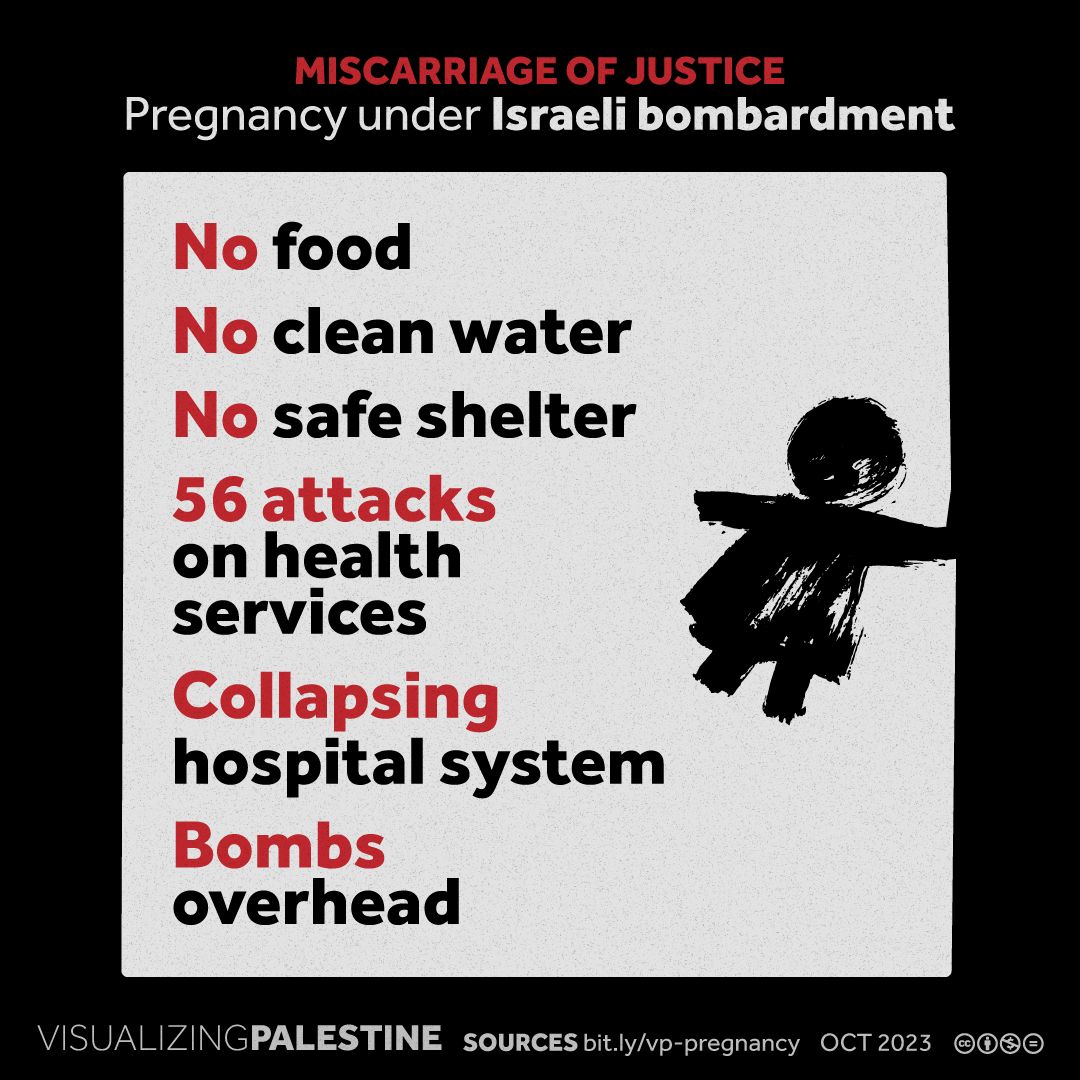
𝗧𝗵𝗲 𝗣𝘀𝘆𝗰𝗵𝗼𝗹𝗼𝗴𝗶𝗰𝗮𝗹 𝗧𝗼𝗹𝗹 𝗼𝗳 𝗣𝗿𝗲𝗴𝗻𝗮𝗻𝗰𝘆 𝗗𝘂𝗿𝗶𝗻𝗴 𝗪𝗮𝗿
The psychological impact of living through a war while pregnant is devastating
and often overlooked. The constant fear of attacks, the trauma of
displacement, and the crushing uncertainty of survival take a severe toll on
mental health. Ridana Zukhra, 25, described the exhaustion she felt while
pregnant and caring for her family amidst the chaos of the conflict. “I couldn’t
rest. I carried my breastfeeding baby and my injured daughter, one on each
side,” she said. “I told myself I had to handle everything on my own.”
The emotional burden on women in Gaza, particularly those who have been
displaced, is overwhelming. According to a survey conducted by UN Women in
In March and April 2024, 75% of women reported feeling depressed, while 65%
often had nightmares, and 62% suffered from sleep disturbances. These
mental health issues are compounded by a near-total lack of mental health
services, resources that have become even scarcer as the conflict continues.
The psychological impact of living through a war while pregnant is devastating
and often overlooked. The constant fear of attacks, the trauma of
displacement, and the crushing uncertainty of survival take a severe toll on
mental health. Ridana Zukhra, 25, described the exhaustion she felt while
pregnant and caring for her family amidst the chaos of the conflict. “I couldn’t
rest. I carried my breastfeeding baby and my injured daughter, one on each
side,” she said. “I told myself I had to handle everything on my own.”
The emotional burden on women in Gaza, particularly those who have been
displaced, is overwhelming. According to a survey conducted by UN Women in
In March and April 2024, 75% of women reported feeling depressed, while 65%
often had nightmares, and 62% suffered from sleep disturbances. These
mental health issues are compounded by a near-total lack of mental health
services, resources that have become even scarcer as the conflict continues.
𝗧𝗵𝗲 𝗜𝗺𝗽𝗮𝗰𝘁 𝗼𝗳 𝗖𝗼𝗻𝗳𝗹𝗶𝗰𝘁 𝗼𝗻 𝗠𝗮𝘁𝗲𝗿𝗻𝗮𝗹 𝗮𝗻𝗱 𝗖𝗵𝗶𝗹𝗱 𝗛𝗲𝗮𝗹𝘁𝗵
It is well-documented that armed conflict has severe and long-lasting effects
on maternal and child health. A global study on maternal and child health
found that women and children living in conflict zones face significantly higher
risks of death and poor health outcomes compared to those living in peaceful
settings. Exposure to violence, trauma, and extreme stress is linked to a range
of devastating birth outcomes, including miscarriage, preterm birth, low birth
weight, and long-term developmental issues for children.
In Gaza, the impact of the ongoing situation is being felt acutely. Pregnant
women and new mothers are suffering from a triple burden of physical injury,
emotional distress, and a severe lack of healthcare. The blockade and the
restrictions on humanitarian aid have only deepened the crisis, leaving families
without the support they need to navigate the overwhelming challenges of
pregnancy and childbirth.
It is well-documented that armed conflict has severe and long-lasting effects
on maternal and child health. A global study on maternal and child health
found that women and children living in conflict zones face significantly higher
risks of death and poor health outcomes compared to those living in peaceful
settings. Exposure to violence, trauma, and extreme stress is linked to a range
of devastating birth outcomes, including miscarriage, preterm birth, low birth
weight, and long-term developmental issues for children.
In Gaza, the impact of the ongoing situation is being felt acutely. Pregnant
women and new mothers are suffering from a triple burden of physical injury,
emotional distress, and a severe lack of healthcare. The blockade and the
restrictions on humanitarian aid have only deepened the crisis, leaving families
without the support they need to navigate the overwhelming challenges of
pregnancy and childbirth.
𝗜𝗻𝘁𝗲𝗿𝗻𝗮𝘁𝗶𝗼𝗻𝗮𝗹 𝗛𝘂𝗺𝗮𝗻𝗶𝘁𝗮𝗿𝗶𝗮𝗻 𝗟𝗮𝘄 𝗮𝗻𝗱 𝘁𝗵𝗲 𝗣𝗿𝗼𝘁𝗲𝗰𝘁𝗶𝗼𝗻 𝗼𝗳 𝗣𝗿𝗲𝗴𝗻𝗮𝗻𝘁 𝗪𝗼𝗺𝗲𝗻
Under international humanitarian law, particularly the Geneva Conventions,
pregnant women and young children are entitled to special protection in times
of armed conflict. Israel, as the occupying power, has a legal obligation to
ensure the civilian population, including pregnant women, receives adequate
food, water, and medical supplies. This includes ensuring the provision of
medical care and transportation, and facilitating evacuation when necessary.
Yet, under the current conflict, these obligations have been shamefully
ignored, and it is pregnant women and children who are paying the ultimate
price.
Under international humanitarian law, particularly the Geneva Conventions,
pregnant women and young children are entitled to special protection in times
of armed conflict. Israel, as the occupying power, has a legal obligation to
ensure the civilian population, including pregnant women, receives adequate
food, water, and medical supplies. This includes ensuring the provision of
medical care and transportation, and facilitating evacuation when necessary.
Yet, under the current conflict, these obligations have been shamefully
ignored, and it is pregnant women and children who are paying the ultimate
price.
𝗔 𝗖𝗮𝗹𝗹 𝗳𝗼𝗿 𝗜𝗺𝗺𝗲𝗱𝗶𝗮𝘁𝗲 𝗔𝗰𝘁𝗶𝗼𝗻: 𝗧𝗵𝗲 𝗪𝗼𝗿𝗹𝗱 𝗠𝘂𝘀𝘁 𝗪𝗮𝗸𝗲 𝗨𝗽
This crisis is one of the greatest humanitarian disasters of our time, and it
demands immediate attention. The international community cannot simply
stand by while pregnant women in Gaza are forced to give birth without basic
care, menstruating without pads, and living in constant fear. The war on Gaza
is not just a war on territory; it is a war on women, a war on their ability to
nurture life, and a war that denies them their fundamental rights.
We must demand action. Humanitarian aid must reach Gaza without
obstruction, and the world must hold those responsible for this atrocity to
account. The suffering of pregnant women and new mothers in Gaza is a crisis
that cannot be ignored. Their courage, their strength, and their resilience in
the face of unimaginable conditions should inspire us all to fight for their rights
and for the future of their children.
The hidden crisis in Gaza is not just one of war; it is a war against women,
against their right to life, dignity, and to give birth in safety. The time for action
is now, before more lives are lost in the shadows of this genocide.
This crisis is one of the greatest humanitarian disasters of our time, and it
demands immediate attention. The international community cannot simply
stand by while pregnant women in Gaza are forced to give birth without basic
care, menstruating without pads, and living in constant fear. The war on Gaza
is not just a war on territory; it is a war on women, a war on their ability to
nurture life, and a war that denies them their fundamental rights.
We must demand action. Humanitarian aid must reach Gaza without
obstruction, and the world must hold those responsible for this atrocity to
account. The suffering of pregnant women and new mothers in Gaza is a crisis
that cannot be ignored. Their courage, their strength, and their resilience in
the face of unimaginable conditions should inspire us all to fight for their rights
and for the future of their children.
The hidden crisis in Gaza is not just one of war; it is a war against women,
against their right to life, dignity, and to give birth in safety. The time for action
is now, before more lives are lost in the shadows of this genocide.
𝙏𝙝𝙞𝙨 𝙘𝙤𝙣𝙘𝙡𝙪𝙙𝙚𝙨 𝙩𝙝𝙚 𝙩𝙝𝙧𝙚𝙖𝙙.
𝙏𝙝𝙖𝙣𝙠 𝙮𝙤𝙪! ❤️
𝘼𝙪𝙩𝙝𝙤𝙧:
@Manie_kr
Blog link:gazagreatminds.org/the-hidden-cri…
Donate: donate.stripe.com/3cs03SdcraNo38…
Website: gazagreatminds.org
#WeWillReadAgain
𝙏𝙝𝙖𝙣𝙠 𝙮𝙤𝙪! ❤️
𝘼𝙪𝙩𝙝𝙤𝙧:
@Manie_kr
Blog link:gazagreatminds.org/the-hidden-cri…
Donate: donate.stripe.com/3cs03SdcraNo38…
Website: gazagreatminds.org
#WeWillReadAgain
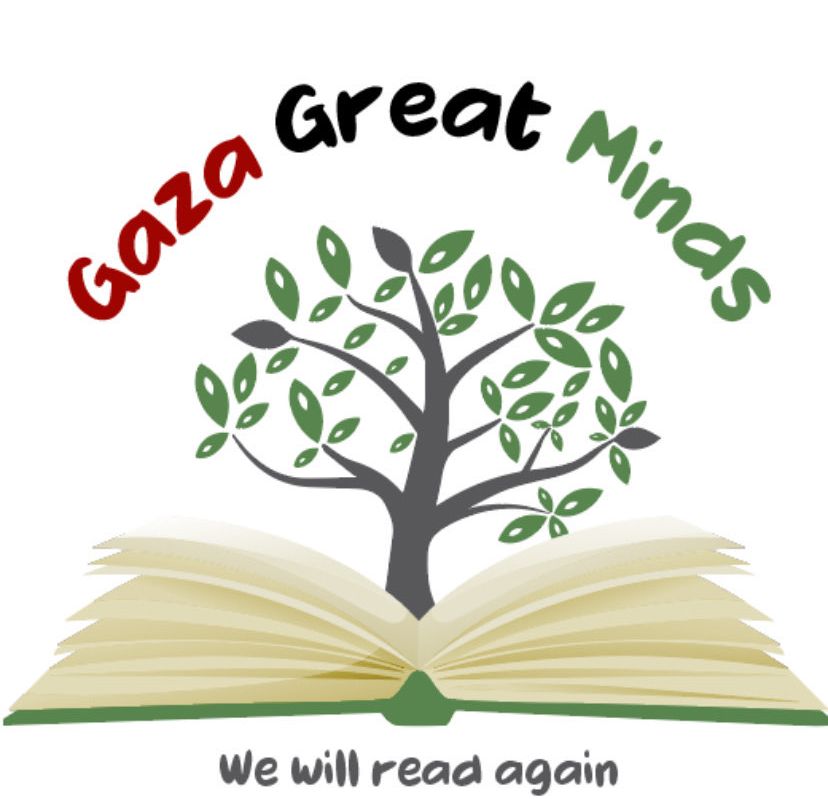
• • •
Missing some Tweet in this thread? You can try to
force a refresh

















